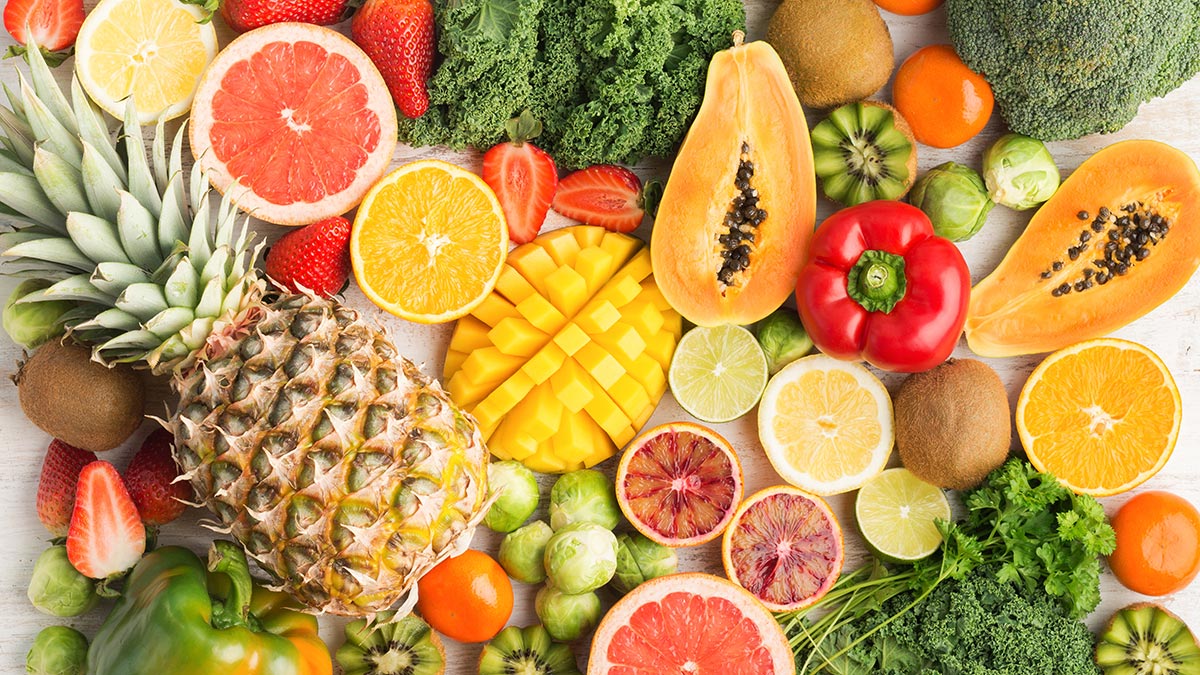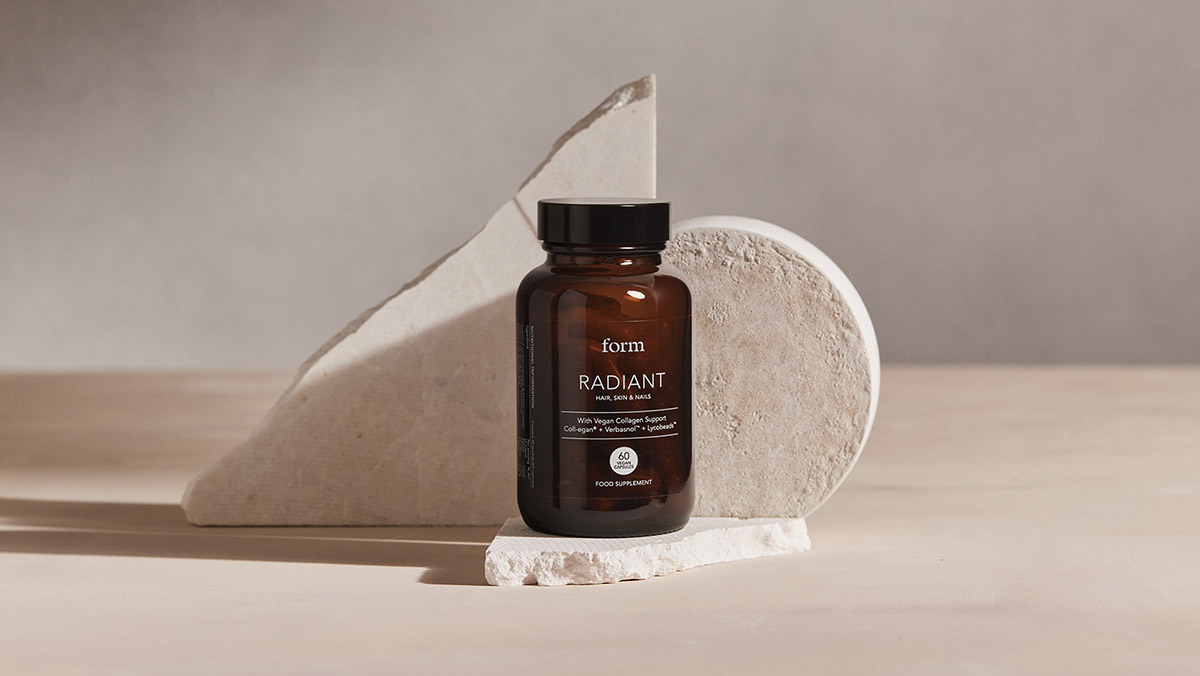What Is Collagen and Why Is It Good for Your Skin?

Every other day, it seems like there’s another trendy cure-all ingredient that can save our dry and lackluster skin. Dermatologist-approved ingredients like niacinamide, retinol and vitamin C have all had their moment in the sun; so too have more unusual TikTok hacks ice rolling, skin glazing and face taping. The latest buzzy ingredient that beauty influencers cite as a skincare miracle? Collagen, a naturally occurring protein that supports skin firmness.
Skincare lovers and celebrities like Jennifer Anniston swear by taking collagen supplements, citing benefits like hydration and anti-ageing. But does incorporating it into your routine really make a difference? And can you reap the benefits if you’re on a plant-based diet? Let’s take a closer look.
What exactly is collagen?
Not just a trendy skincare ingredient that you’ve likely seen in your local drugstore, collagen is actually a naturally occurring protein that’s found in our bones, muscles, skin and tendons. There are 28 known types in total, with type I collagen accounting for 90% of the collagen in our bodies.
Collagen is primarily produced by a triad of hard-to-pronounce cells called fibroblasts, chondrocytes, and osteoblasts, which can be found in various tissues throughout the body. These cells work in tandem to synthesise collagen molecules, which come together to form long, rope-like fibers called collagen fibrils. Tightly woven together, they allow the skin, bones and joints to withstand everyday stress and maintain their shape.
Why is collagen so important?
If you’re someone who keeps an eye on TikTok trends, you’ll likely have already heard about collagens laundry list of benefits; in particular, its anti-ageing properties.
As collagen plays a vital role in maintaining the elasticity of our skin, it’s a key player in keeping the skin smooth and youthful-looking throughout our lives. The catch? There’s a limit on our supply. As we age, the body’s natural production of collagen tends to decline, which can lead to changes in skin firmness. This gradual process causes the tell-tale signs of aging, like wrinkles and sagging skin.
Aside from maintaining our complexion, collagen’s benefits go further than just skin-deep. Not only does it provide structural support to the soft tissues in our body, it also plays an important role in supporting our immune system and repairing our muscles after exercise. Research has even linked collagen to better heart health and joint repair too.
How can I slow down my collagen loss?
Getting older is a natural part of life, and while advertising and social media might convince us otherwise, it should be something we celebrate rather than fear. And while there’s no magic bullet to stop ageing, nutrition experts suggest that we can support our supply by switching up our diet.
Collagen is abundantly found in the joints and skin of fish and poultry, making it challenging for people following a plant-based diet to maintain their levels. However, our bodies can make collagen by combining certain building blocks like amino acids, vitamin C, zinc and copper. So even though plant-based diets may not directly provide collagen, eating foods packed with these important nutrients can still help.

Some good options to add to your shopping trolley include fruits like oranges, strawberries, and kiwis, as well as vegetables like bell peppers, and beans, seeds, nuts and spinach.
As an extra insurance policy, you might also consider using supplements. Most collagen products come in powder or capsule form and usually contain ingredients derived from animals like cows or fish, typically packaged as marine or bovine collagen. Helpfully though, scientists have recently been developing formulas and techniques to help plant-based eaters manufacture collagen naturally, without having to compromise on their dietary choices.
Currently, California-based protein design company Geltor is developing new techniques, using genetically engineered microorganisms to create synthesized human collagen, although this technology hasn’t yet been brought to market.
Right now, Form’s Radiant capsules are leading the charge, containing a special ingredient called Coll-egan®, which has all the building blocks of collagen but in vegan form. These capsules can support collagen production for your skin, bones, and joints, so you can maintain your year-round, healthy glow.
And what about collagen-infused skincare? Well, studies have concluded that putting collagen into your skin sadly isn’t going to encourage the existing collagen to miraculously multiply. However, it does have promising moisturising benefits when applied to the face, so if you’ve recently splashed out on a collagen-rich moisturiser, it’s not a total waste.



















